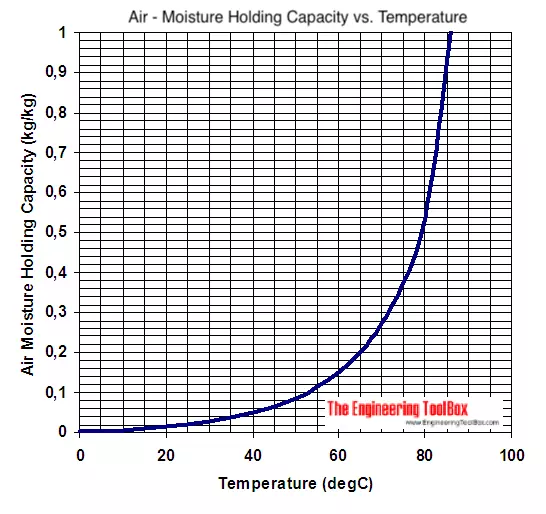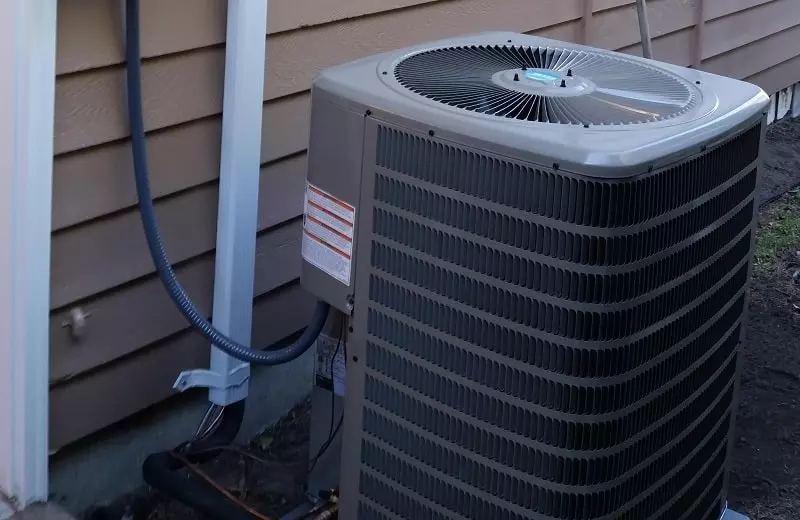Do heat pumps dry the air? In this article, we’re going to check if a heat pump will dehumidify your room’s air (Spoiler: They don’t, but the air feels dryer).
And then, we’re going to check how you can keep your room’s humidity at a comfortable level.
Quick answer: No, heat pumps do not dry the air. Instead, they reduce the air’s relative humidity, making it feel dryer. This phenomenon is typical to all heaters and not specific to heat pumps. The reduced relative humidity is what you perceive as dry air. In case you prefer humid air, you will need a humidifier.
So, let’s unravel all your heat pump & humidity questions one by one! After reading this article, you will understand why heat pumps don’t remove water from the air, but still make you feel dry.
And I will tell you what you can do about it!
Let’s start:
Do heat pumps take moisture out of the air?
No, heat pumps don’t remove any moisture from the air. A heat pump merely increases your room’s temperature. It does not actively remove water from the air.
However, heat pumps increase your room’s temperature. And the increased temperature can make you feel as if the air is dryer.
The reason is that warm air has a higher water-holding capacity. The chart below shows the moisture-holding capacity of air for varying temperatures.
 ( source)
( source)
As you can see, air can hold a seemingly exponentially growing amount of water with increasing temperature.
The higher this water holding capacity is, and the higher the temperature in your room is, the more water inside your room evaporates.
The water evaporating comes from plants, the room’s walls, your body, or condensation droplets on the windows.
So, actually, with increasing temperature, the amount of water in your room’s air increases.
But because the humidity is wicked away from your body, you feel as if the air was dry.
And indeed, the relative humidity of the air decreases with increasing temperature.
The relative humidity of air is the amount of water in the air in comparison with the amount of water than can be held by the air.
Because hot air can hold a lot of water, the relative humidity of the air increases.
So, while the absolute humidity of your room’s air is equal or increases (because of evaporating water from your room), the relative humidity decreases.
The physics of dehumidifying a room
Imagine a closed room. The room is perfectly sealed. Inside the room, there’s air with moisture. None of the air can ever escape the room.
In the room, there is only one object which is a heat source. Right now the room is cold and humid.
What happens when we turn the heater on?
The temperature rises. But since the room is perfectly sealed, nothing else happens. The room still contains the very same amount of humidity and air.
A heat source never removes humidity from the air. To remove humidity, you will have to vent the room.
Why do air conditioners remove moisture but heat pumps don’t?
Heat pumps are very similar to air conditioners. Basically, they are like air conditioners but reversed.
Instead of using extracting heat from your room and blowing it outdoors, heat pumps extract heat from the outdoor air and blow it indoors.
So, why do air conditioners remove moisture from the air, but heat pumps don’t?
Here’s why:
During an air conditioner’s cooling process, the air conditioner absorbs humidity from the air. The humidity condensates to droplets and is collected in a water tank or drained immediately.
If you don’t drain your air conditioner, then the water will not leave your room. This means: An air conditioner does not absorb water from your room.
That’s a very common misunderstanding!
An air conditioner only condensates the water in your room. So, all an air conditioner does is change the physical state of the water from gaseous to liquid.
The draining of the air conditioner is what actually removes the humidity from your room!
Applying the principles to heat pumps
If we apply these realizations to heat pumps, then we get the following conclusion:
- A heat pump changes the state of water from gaseous to liquid. But since it’s a reverse air conditioner, the state change will happen outdoors. This means that a heat pump does not do anything with indoor air.
- A heat pump does not have an indoor drain. Heat pumps only carry heat indoors (through convection, or another medium). So, there is no way humidity will leave your room.
Heat pumps do not absorb water as air conditioners do. They don’t have a water tank filling up. And you will never have to drain water from a heat pump.
Will a heat pump get rid of condensation?
Heat pumps generally reduce the amount of condensation in your home. Heated air absorbs more humidity than cold air. Therefore, any kind of heater, whether powered through a heat pump or not will achieve a condensation decrease.
After installing a heat pump you can only expect a change in your current humidity situation if you run your heat pump on higher temperature settings.
If you are currently running an electric, gas, or oil-powered classic heating system, then a heat pump will not reduce the condensation if you run it on the same temperature settings as your previous heating system.
However, if you increase the temperature of your heat pump, it will reduce the condensation.
Heat pumps are very power-efficient, so it’s inviting to run them on higher temperature settings.
Do you need a humidifier with a heat pump?
Most people do not need a humidifier to run along a heat pump. However, if you prefer humid air or you have health issues (dry skin, breathing problems, etc.), then you should get a simple humidifier.
Recommended Humidifier
I always recommend simple and solid products. For humidifying, I would pick this humidifier(click here to view it on amazon).
But actually, it does not really matter which exact humidifier you end up buying. All humidifiers are technically the same and they only differ in quality and design.
So, pick one that suits your preferences!
Conclusion
The way heat pumps (and heaters in general) increase the amount of water floating around in the air while actually making you feel drier is a bit confusing at first.
I hope this article clarified your questions!
If you are sensitive to dry air, then I highly recommend getting a humidifier!
Especially in the cold wintertime, when your heat pump is running on higher power settings, the air will feel dry. So, prepare!
